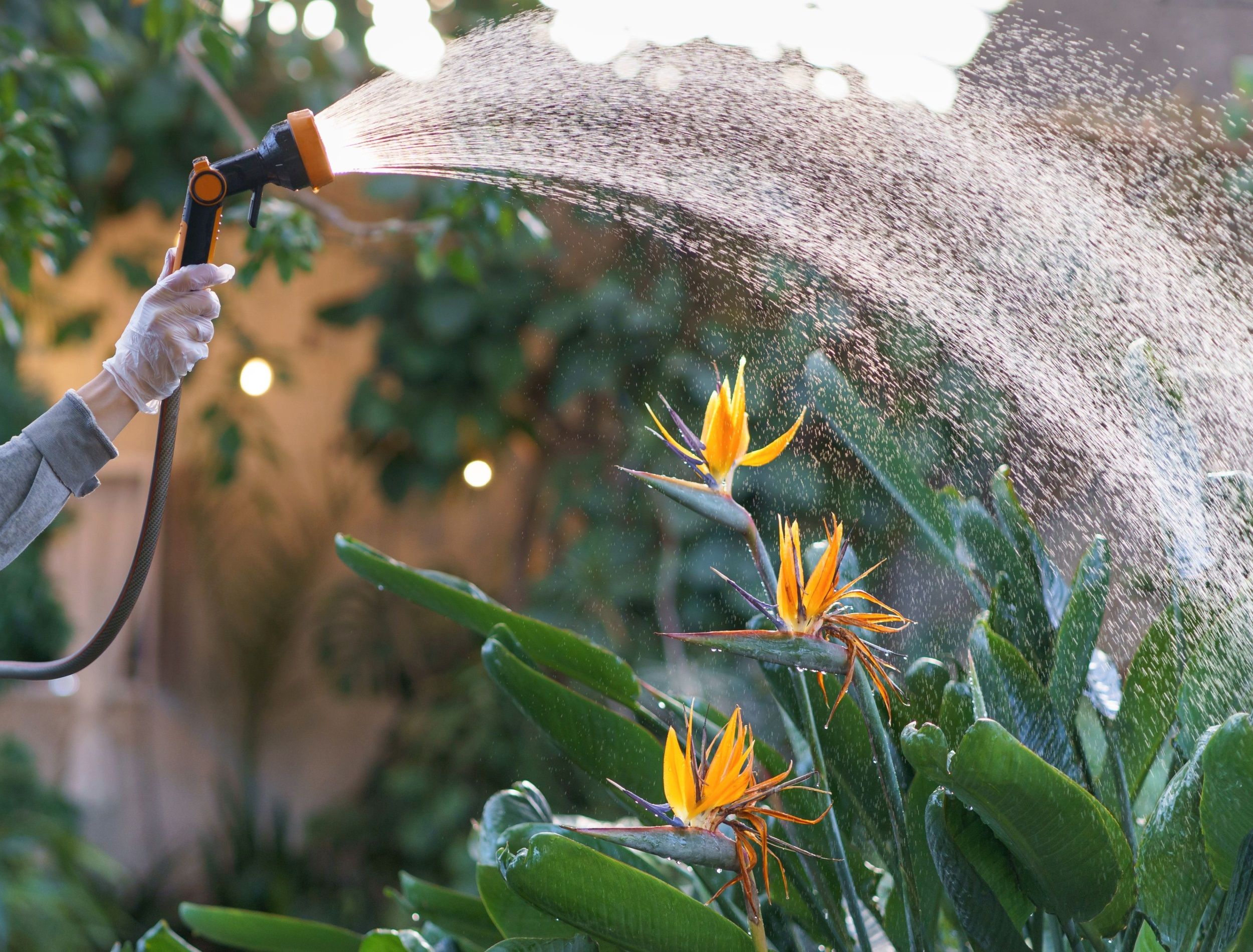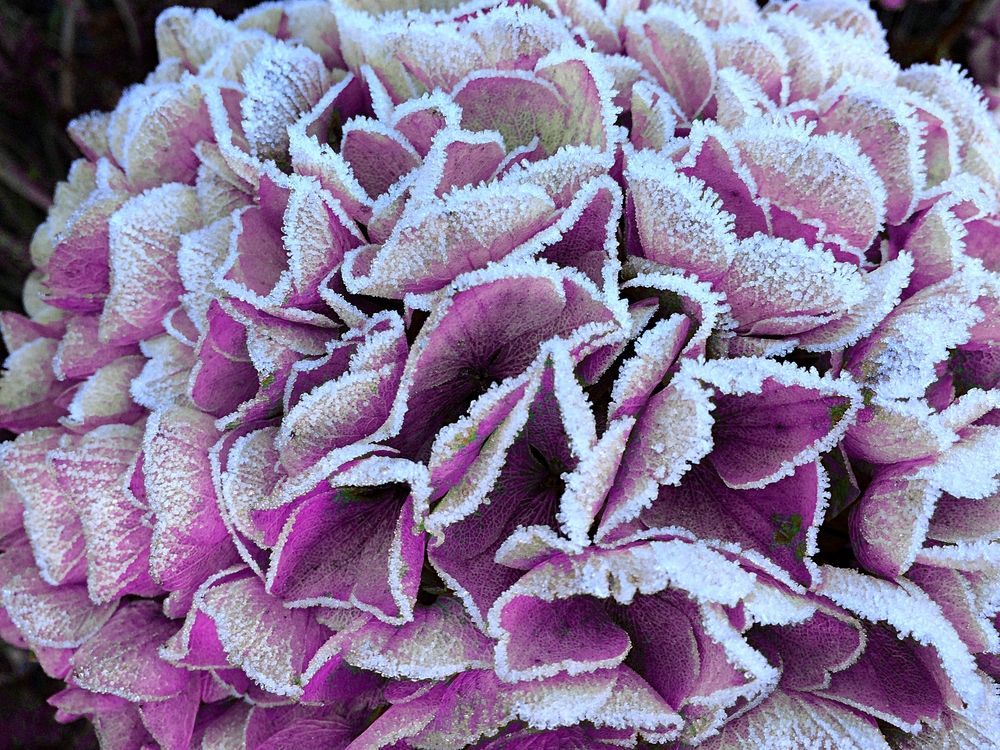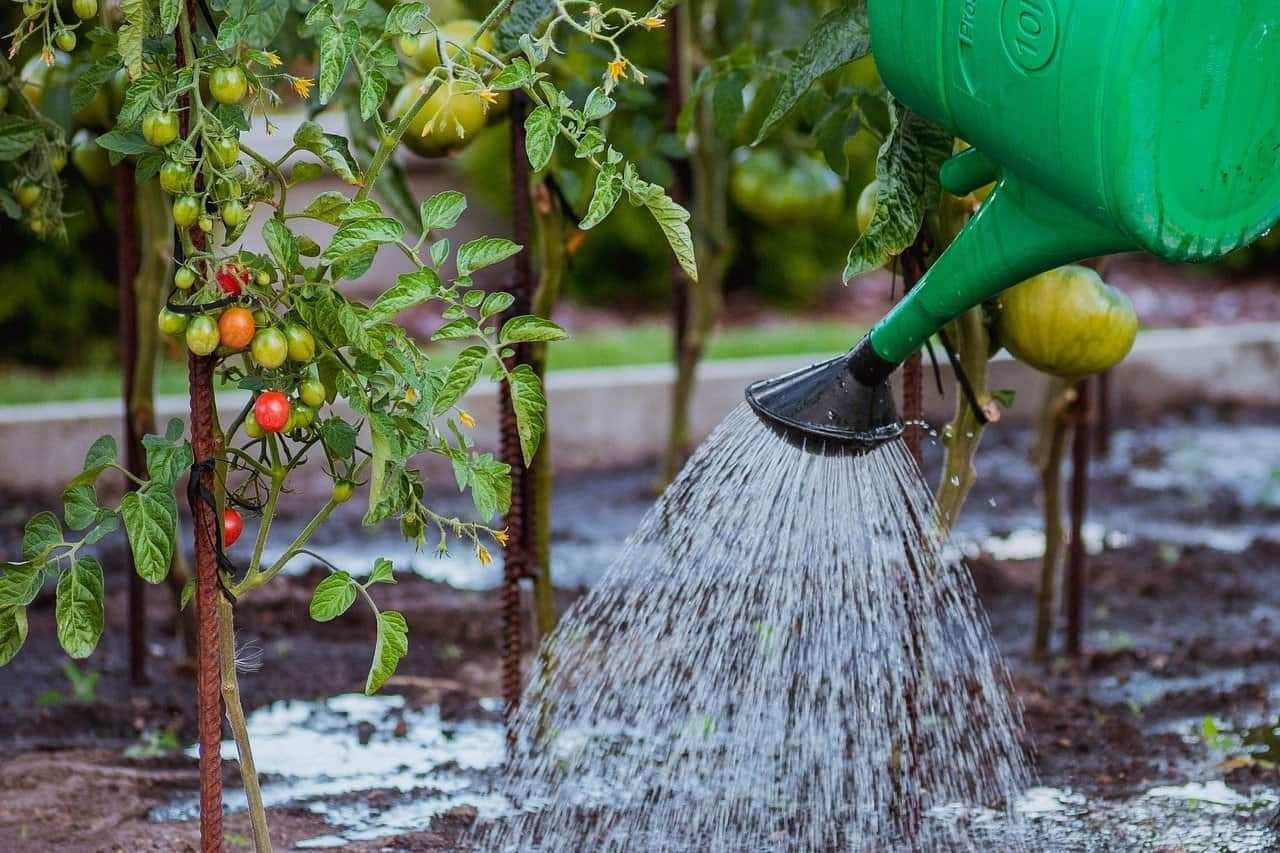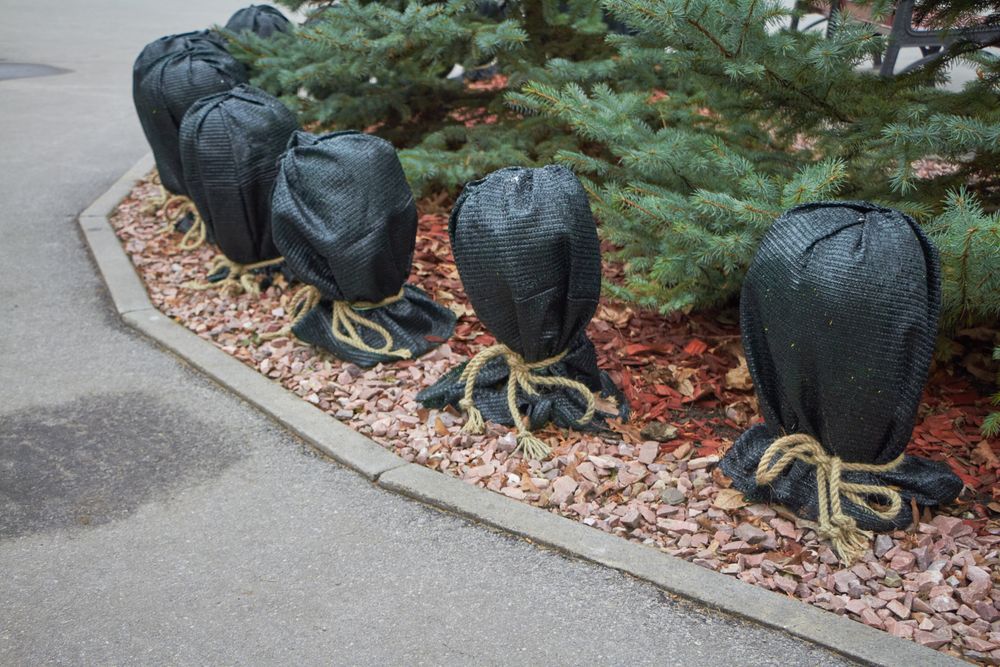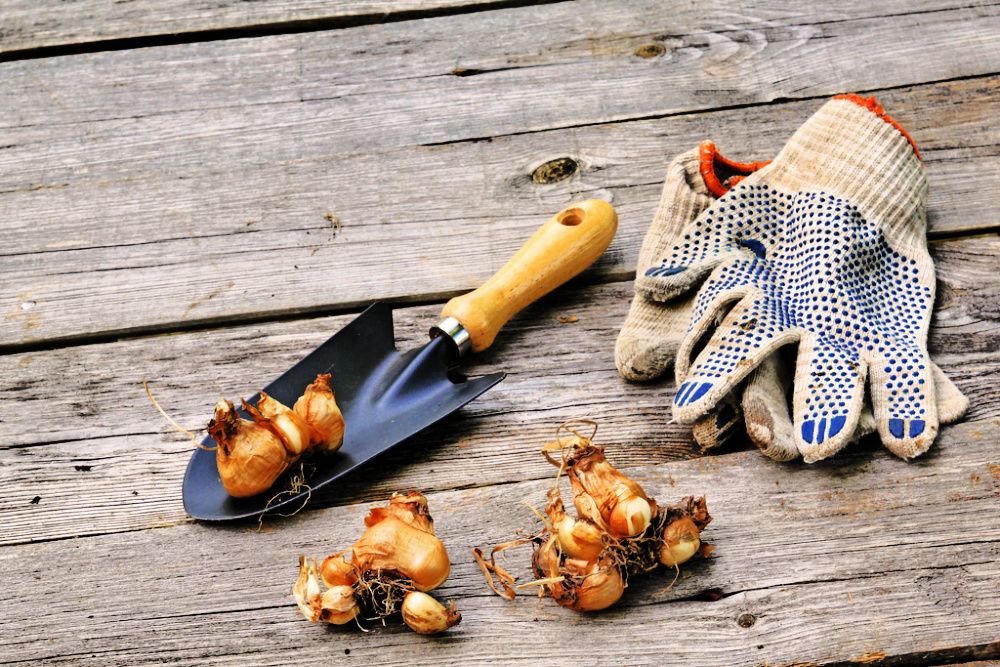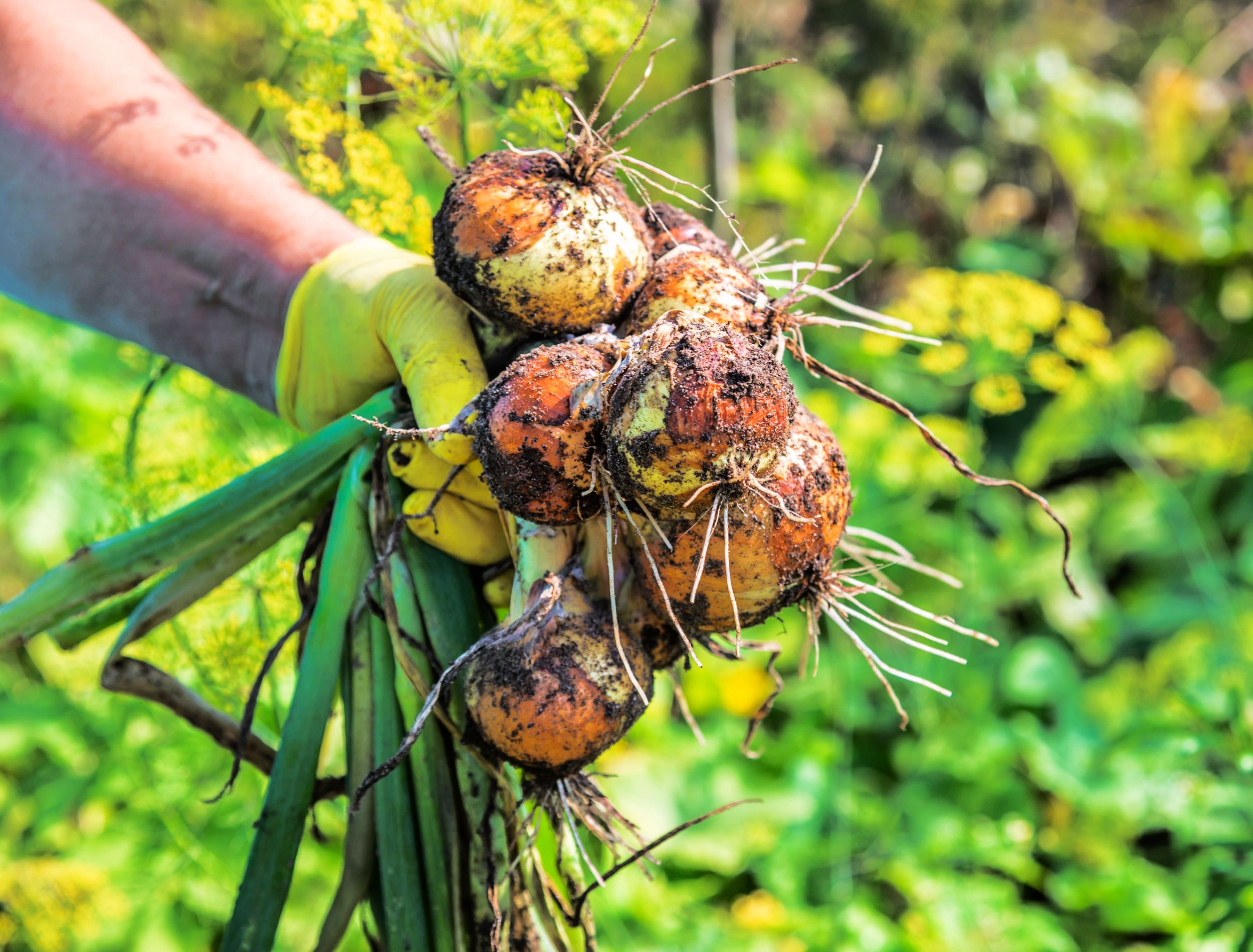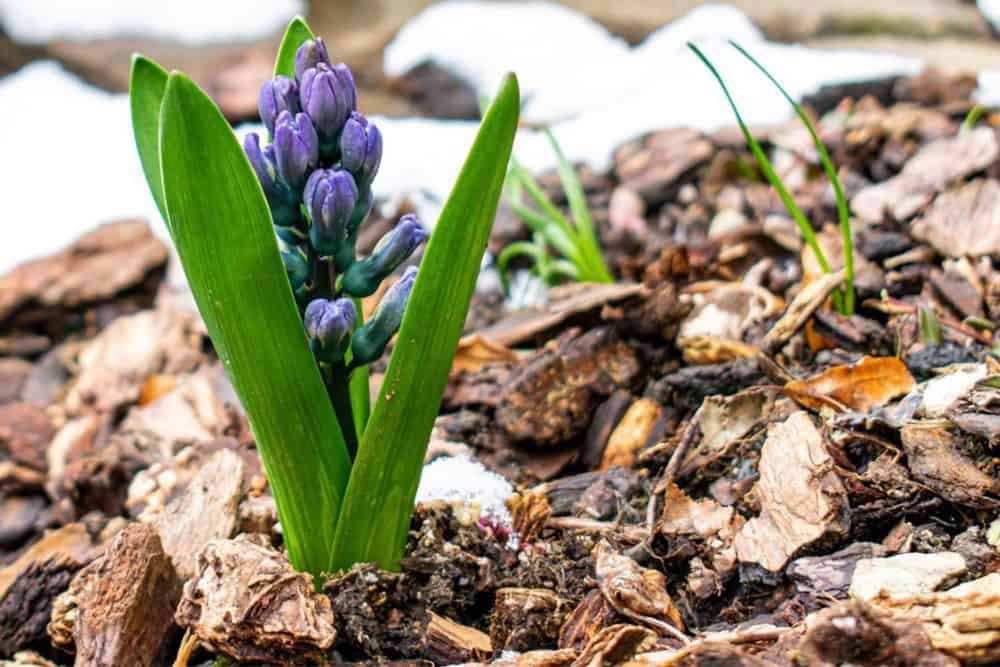It's that time of year again - the leaves are changing, the weather is cooling down, and pumpkin spice everything is back in season! With all of the lovely fall festivities comes a question that often plagues gardeners: should you water your plants before a frost? The answer isn't as clear-cut as you might think. Keep reading to find out more!
First - The Difference Between Frost and Freeze Dates
Image credits: tbmnk via Shutterstock
Frost date and freeze date are two terms that are often used interchangeably, but they actually have different meanings.
Frost date is the average date the first frost of the season occurs in your area. This date can vary depending on where you live.
Freeze date, on the other hand, is the average date on which the temperature in your area drops below freezing for at least four consecutive hours. Again, this date can vary depending on where you live.
So, what does all this mean for your garden? Well, if you're trying to figure out when to plant your crops, the frost date is a more important factor to consider than the freeze date. That's because, even though the temperature may drop below freezing for a few hours on any given night, it's not likely to stay there long enough to damage most plants. However, if there's a frost, the temperatures are likely to stay below freezing for several hours, which can damage or kill many types of plants.
Of course, if you're growing crops that are sensitive to cold weather, such as tomatoes or peppers, then you'll need to be extra careful about both the frost date and the freeze date. In these cases, you might want to consider using some type of protection for your plants, such as a greenhouse or row covers. This way, you can extend your growing season and get a head start on the planting season.
Watering Before A Frost, Yay Or Nay?
Image credits: jwvein via Pixabay
So, should you water your plants before a frost? The answer is yes! Watering your plants before a frost can help them survive the cold and come back stronger in the spring. Here’s why:
When water freezes, it expands. This can cause the cells in plant tissue to rupture, leading to damage or even death. However, if you water your plants before a frost, the water will act as an insulator between the cold air and the plant cells. This can help prevent the cells from rupturing and keep your plants alive during a cold snap. Additionally, moist soil will stay warmer than dry soil, so watering can help protect plants from a sudden frost.
Other Tips For Protecting Your Plants Before A Frost
When the temperatures start to dip at night, you'll want to take measures to protect your plants from frost. Here are some ideas:
Commercial Frost Cloths Or Row Covers
Image credits: Ramann via Shutterstock
One of the best ways to protect your plants from frost is to cover them with commercial frost cloths or row covers. This will help to trap heat and moisture, both of which will keep the plant warmer. You can also use a variety of materials to cover your plants, including old bed sheets, burlap, tarps, or even plastic buckets placed over small plants. Just make sure that the material is staked to the ground, so the wind doesn’t take it away.
If you use a plastic sheet to protect your plants from cold weather, make sure it doesn't touch any leaves or fruit. Cold can transfer through the material of the cover and damage the plant. Remember to remove the cover when temperatures increase during the day, so your plant can get the air and light it needs.
Change Your Planting Date
Image credits: Sarycheva Olesia via Shutterstock
When it comes to planting, timing is everything. Planting too early in the spring can result in your plants getting nipped by frost. That's why many gardeners recommend planting later in the season after the risk of frost has passed. This way, your plants will have a better chance of surviving and thriving.
Of course, there are a few things to keep in mind if you're going to plant later in the season. First, make sure you choose varieties that are known to be tolerant of heat and drought. These will be better able to withstand the warm weather and lack of water that can sometimes come with summertime.
In addition, be prepared to water your plants more frequently. They'll likely need it, as the hot weather can cause them to dry out quickly.
With these tips in mind, you can enjoy a beautiful, bountiful garden - even if you plant a little later than everyone else. So don't be afraid to get a late start - your plants will thank you for it!
Harvest Earlier
Image credits: alicja neumiler via Shutterstock
If you think that frost is coming, it's important to harvest your crops as soon as possible. This will help to prevent any damage from occurring to your fruits and vegetables. If you're not sure when frost is coming, you can always check the weather forecast or ask your local gardener.
If you have harvested crops that need some ripening, you can place them in a paper bag and leave them in a cool, dry place. Be sure to check on them every couple of days to ensure there is no mold or rot!
Mulch!
Image credits: Cornell Frühauf via Pixabay
Mulching helps insulate the ground and keep the roots warm. This can prevent frost damage to your plants. There are many different materials you can use for mulch, including straw, pine needles, wood chips, and leaves.
Make sure to apply a thick layer of mulch around your plants before the first frost, about 2 to 3 inches thick. You may need to reapply it during the winter if it gets too cold.
With a little effort, you can keep your plants healthy and damage-free all winter long!
Don't Let The Frost Bite!
Fall is a great time to garden, especially if you want to keep your plants alive! While it may be tempting to let them go dormant for the winter, there are a few things you can do to make sure they stay healthy. One important step is watering them before a frost – even if it means braving the cold!
So, the next time you’re fretting about whether to water your plants, just remember – it’s better to be safe than sorry! And if you have any tips or tricks of your own, be sure to share them in the comments below!

